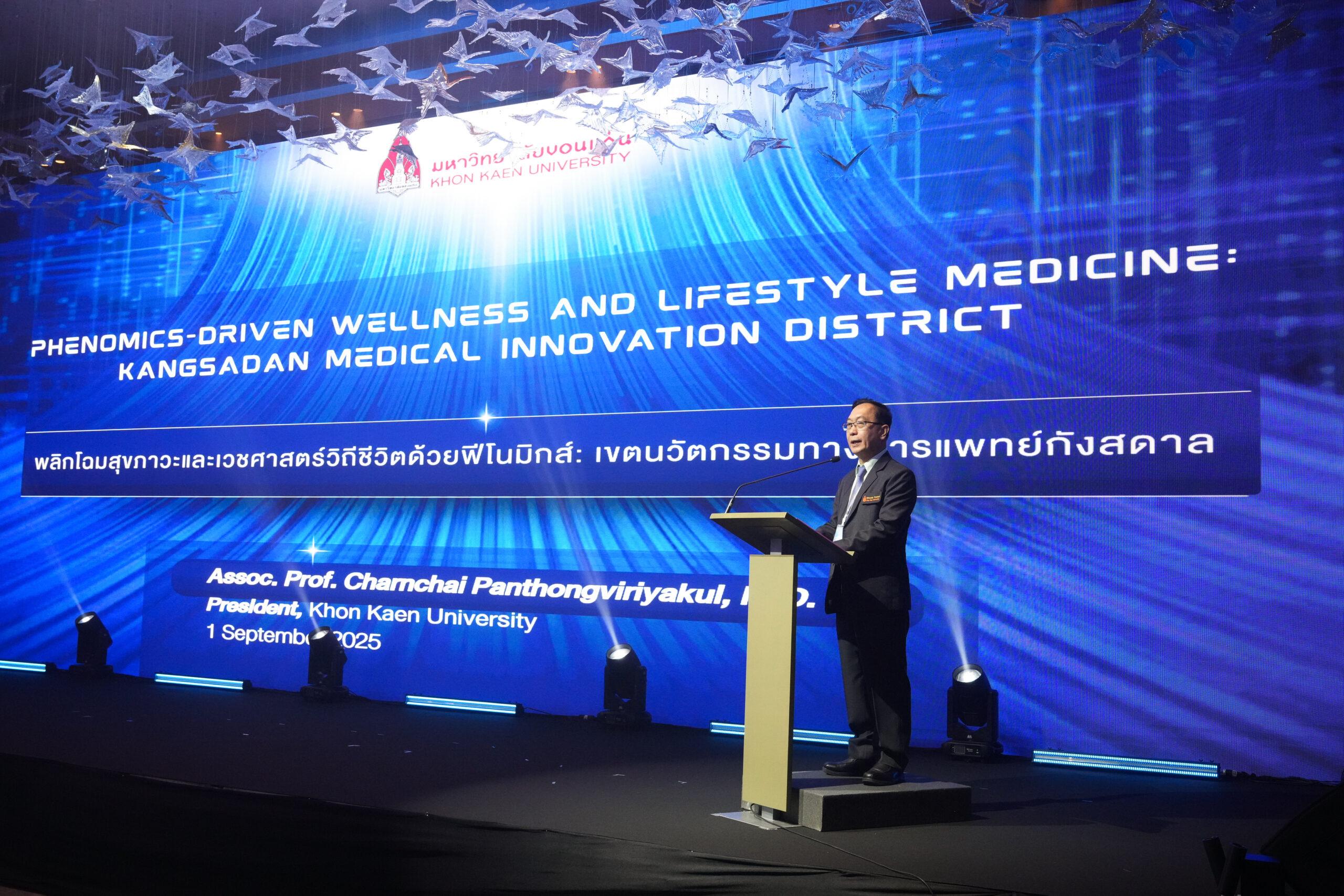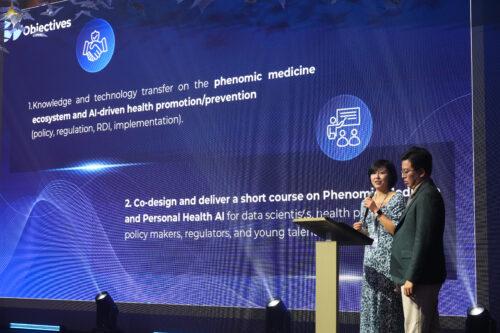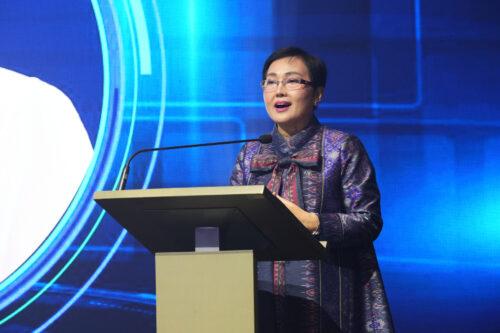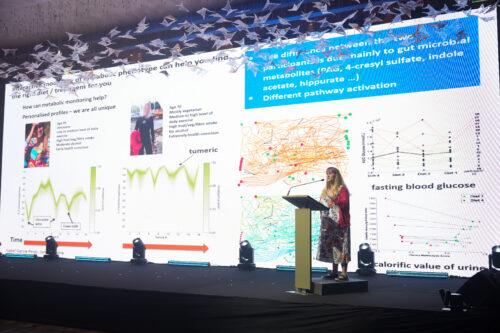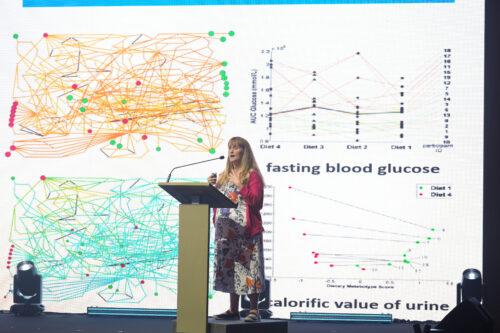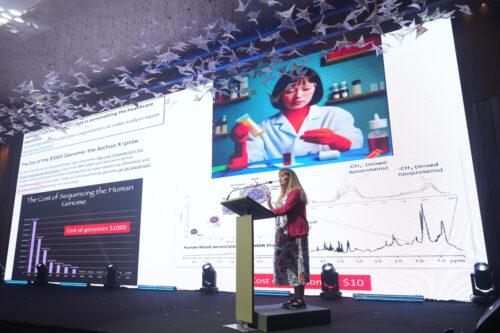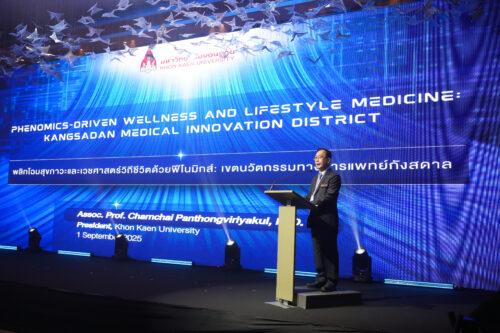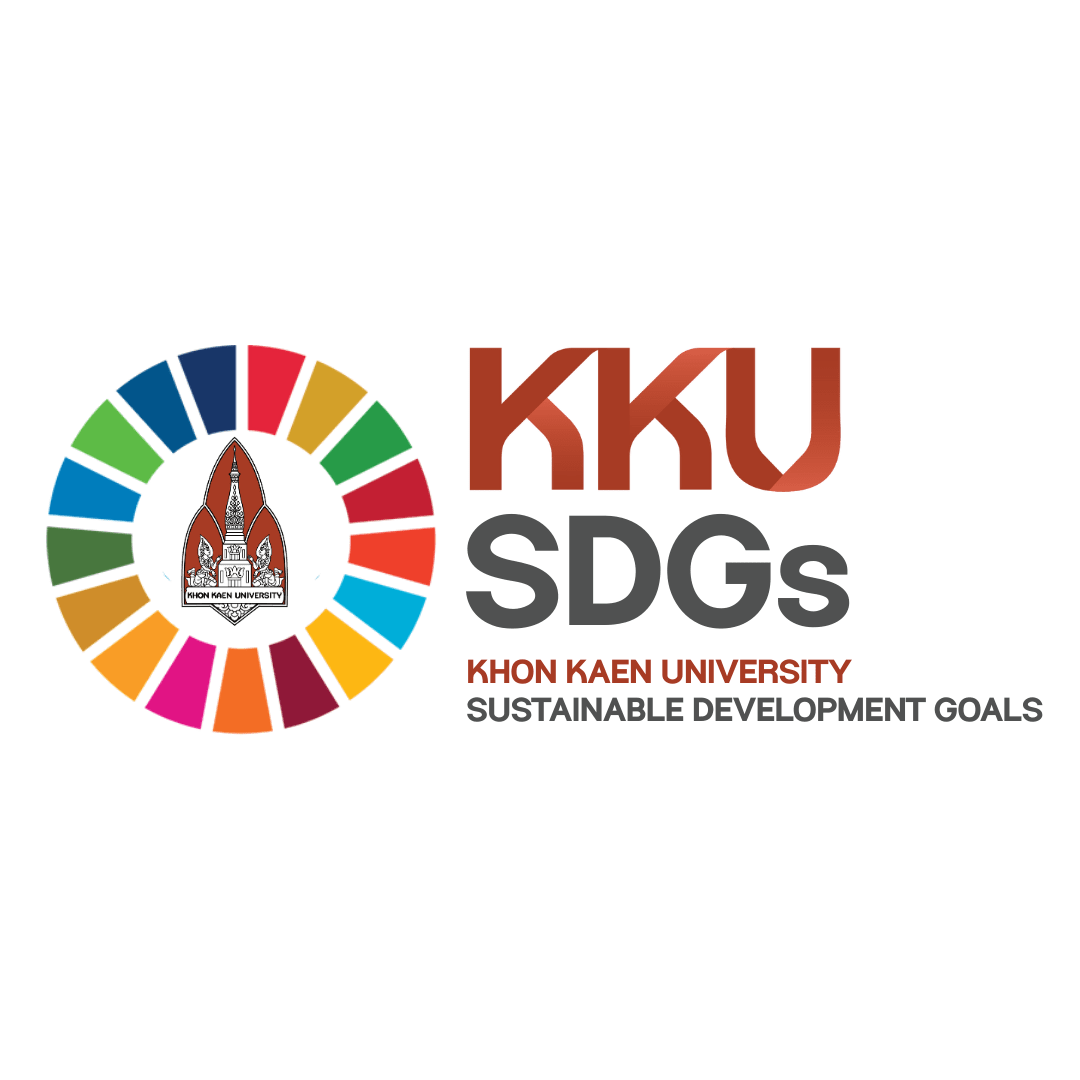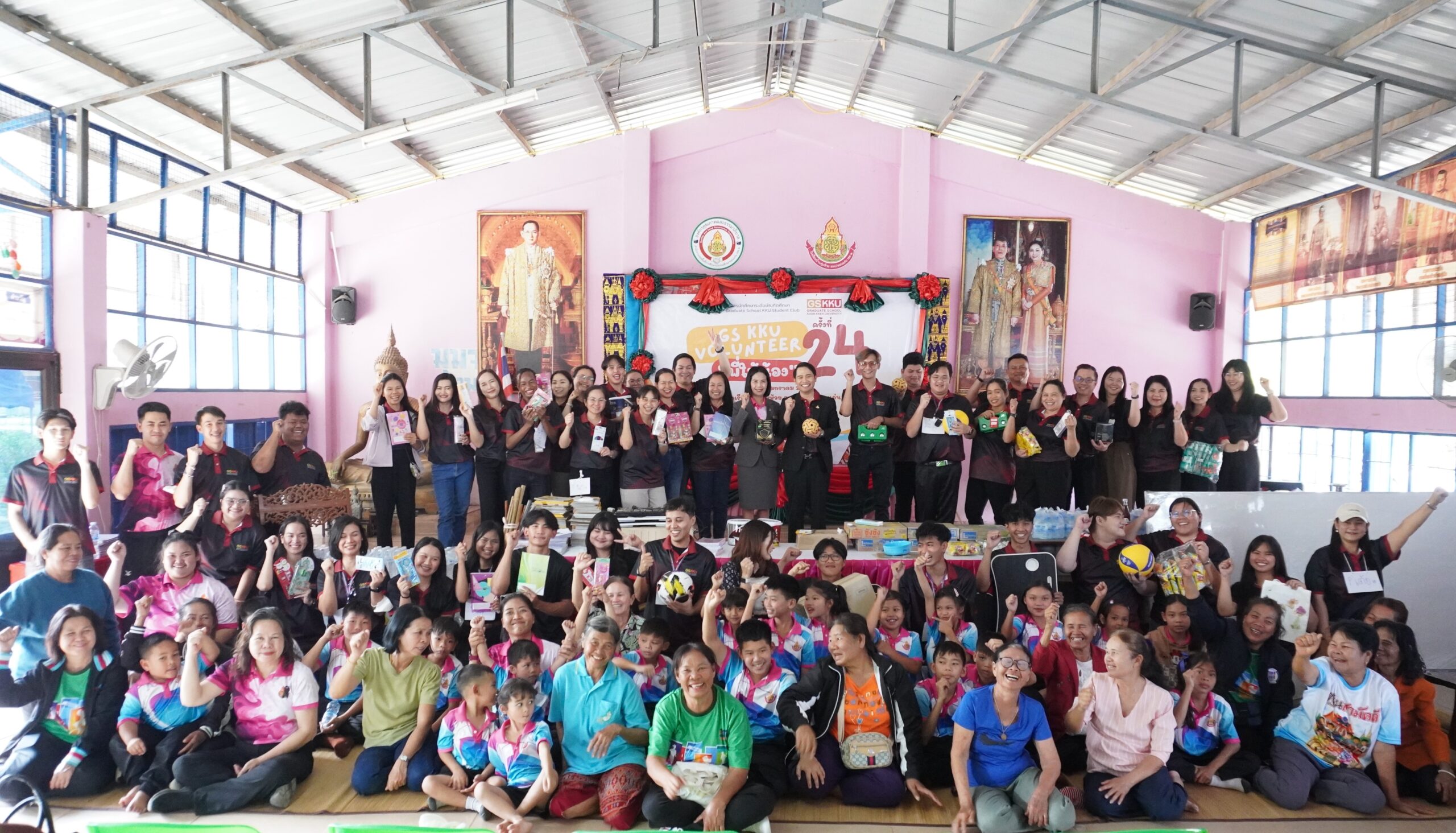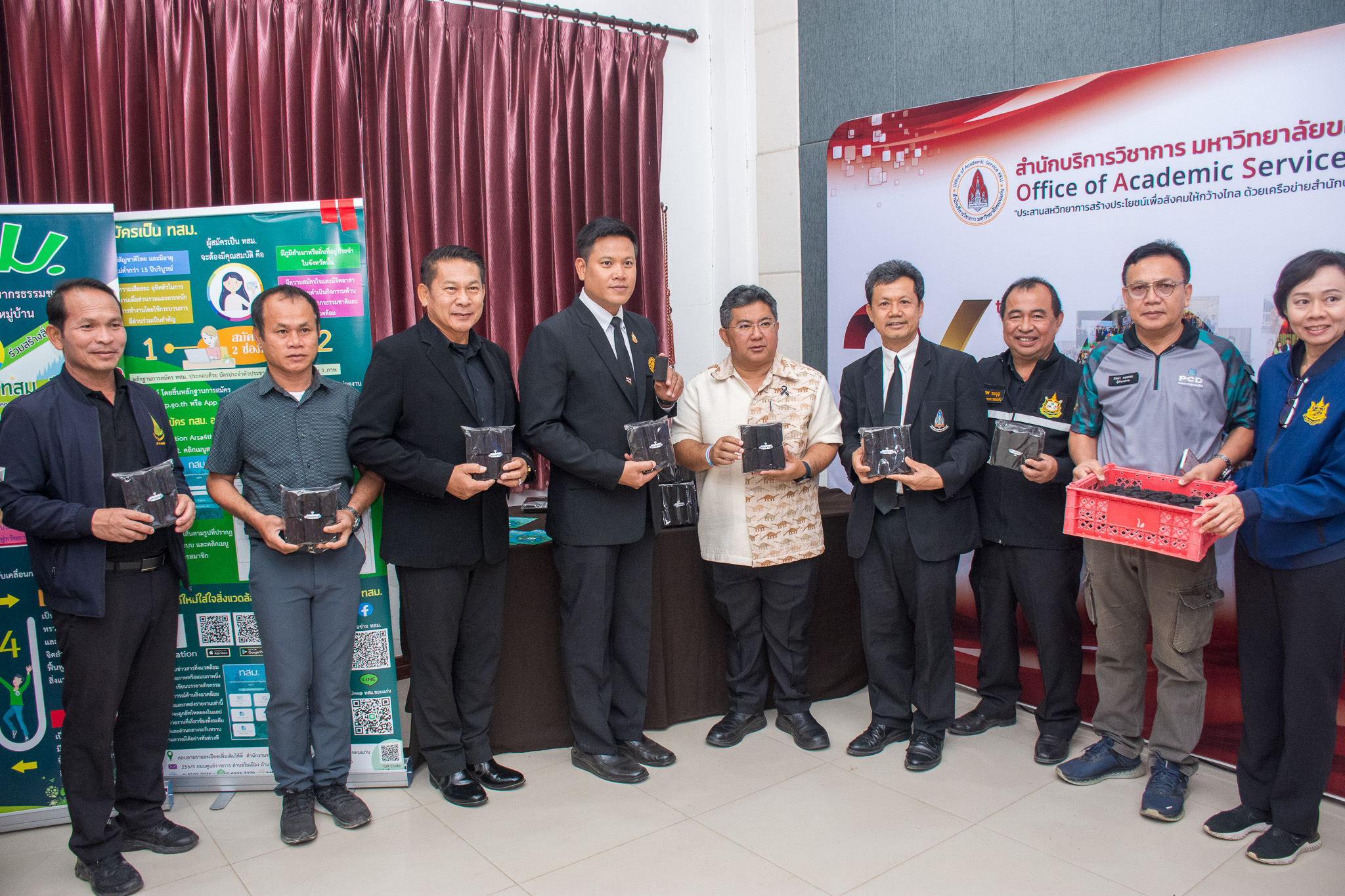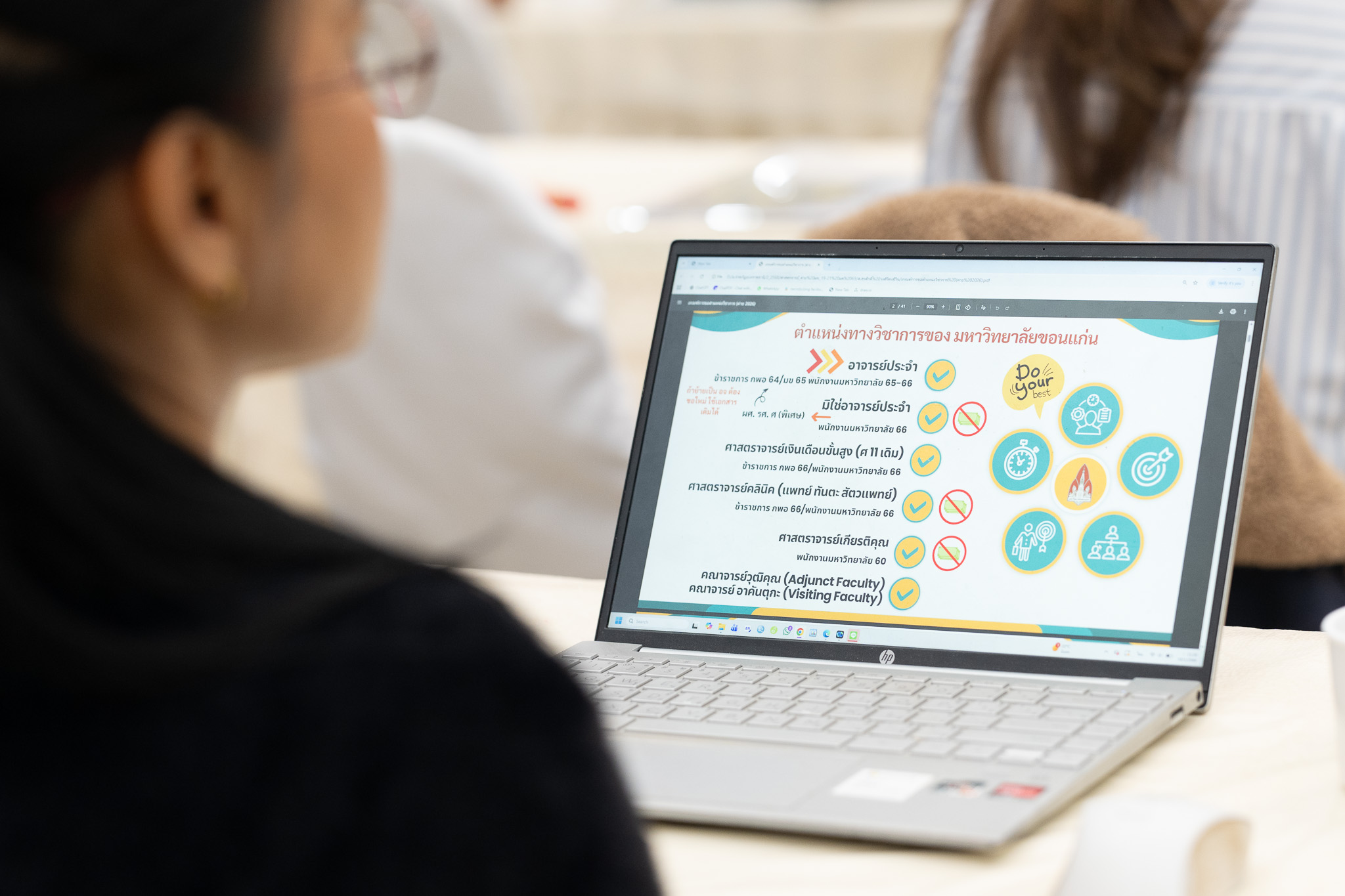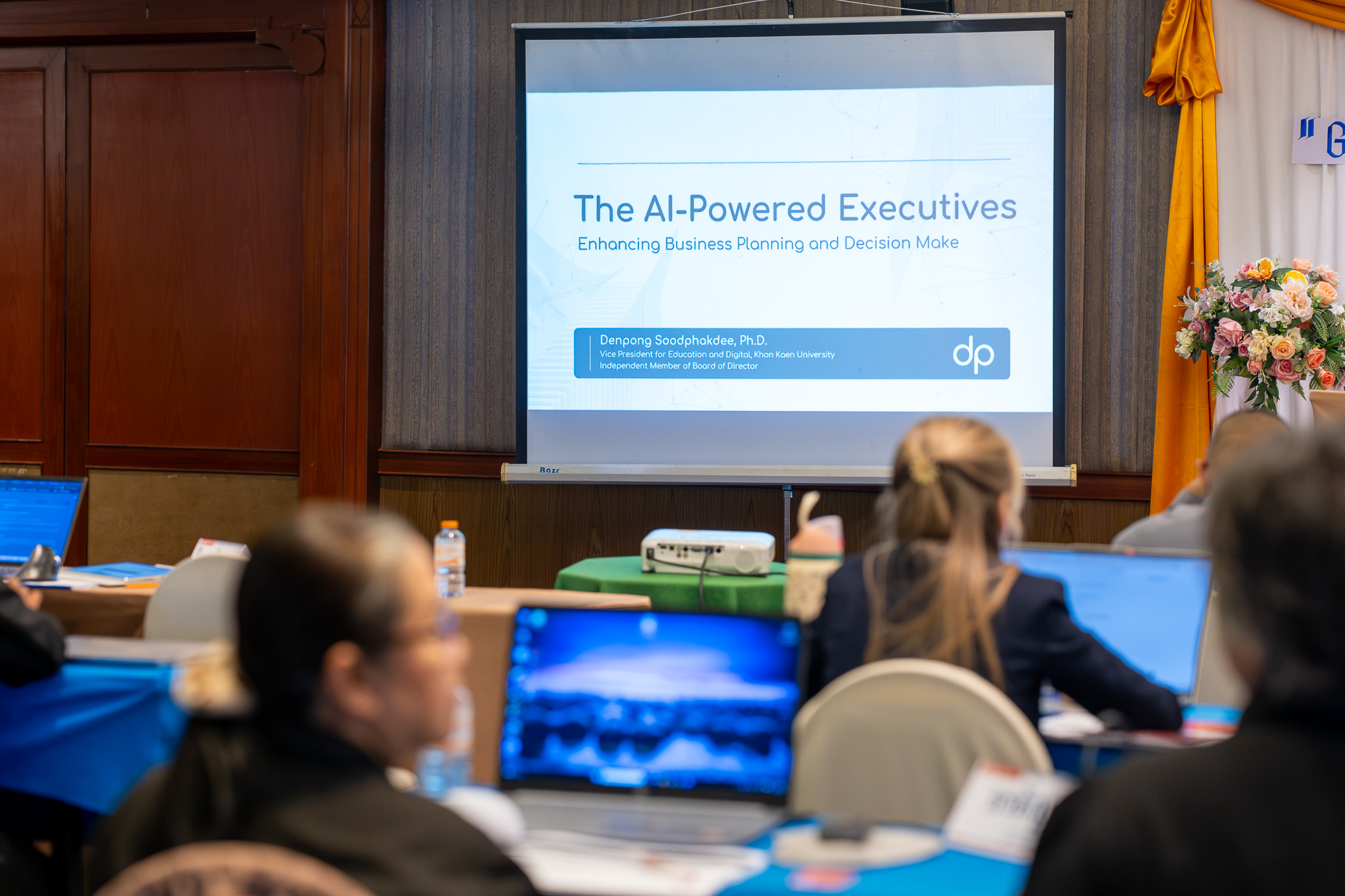BANGKOK – Khon Kaen University (KKU) executives joined a major international academic conference on September 1, 2025, to outline a strategic vision for integrating phenomic medicine and artificial intelligence into Thailand’s healthcare system. The event, held at the Capella Bangkok hotel, aims to propel the nation toward a future of sustainable precision medicine and smart health.
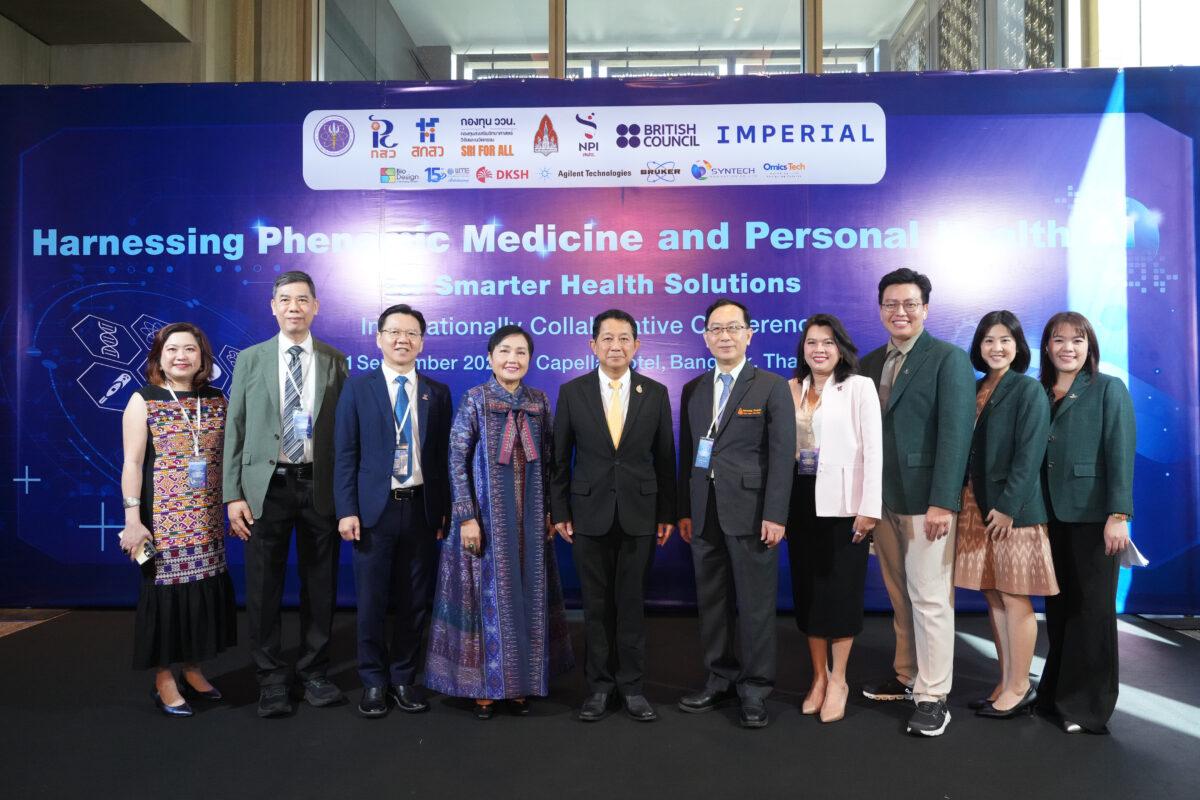
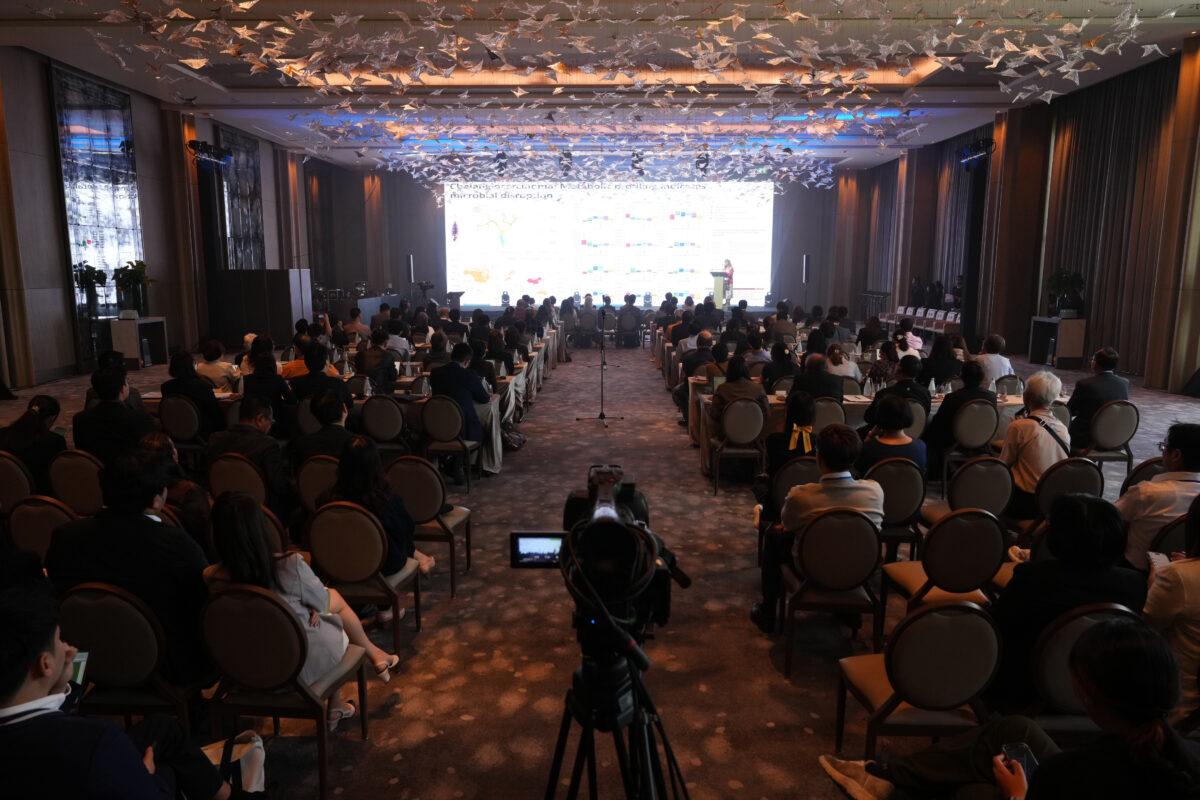
The conference, titled “Leveraging Phenomic Medicine and Artificial Intelligence to Enhance Smart Health,” was organized in collaboration with international research partners, most notably the Faculty of Medicine at Imperial College London. The initiative serves as a strategic platform to merge phenomics, AI, and digital health policy to transform national healthcare.
Presiding over the ceremony, Prof. Dr. Sirirurg Songsivilai, Chairman of Thailand Science Research and Innovation (TSRI), described the event as a “milestone for the future.” He emphasized its role in driving the integration of health data, science, clinical practice, and policy to create a knowledge-based infrastructure that benefits both society and the economy.
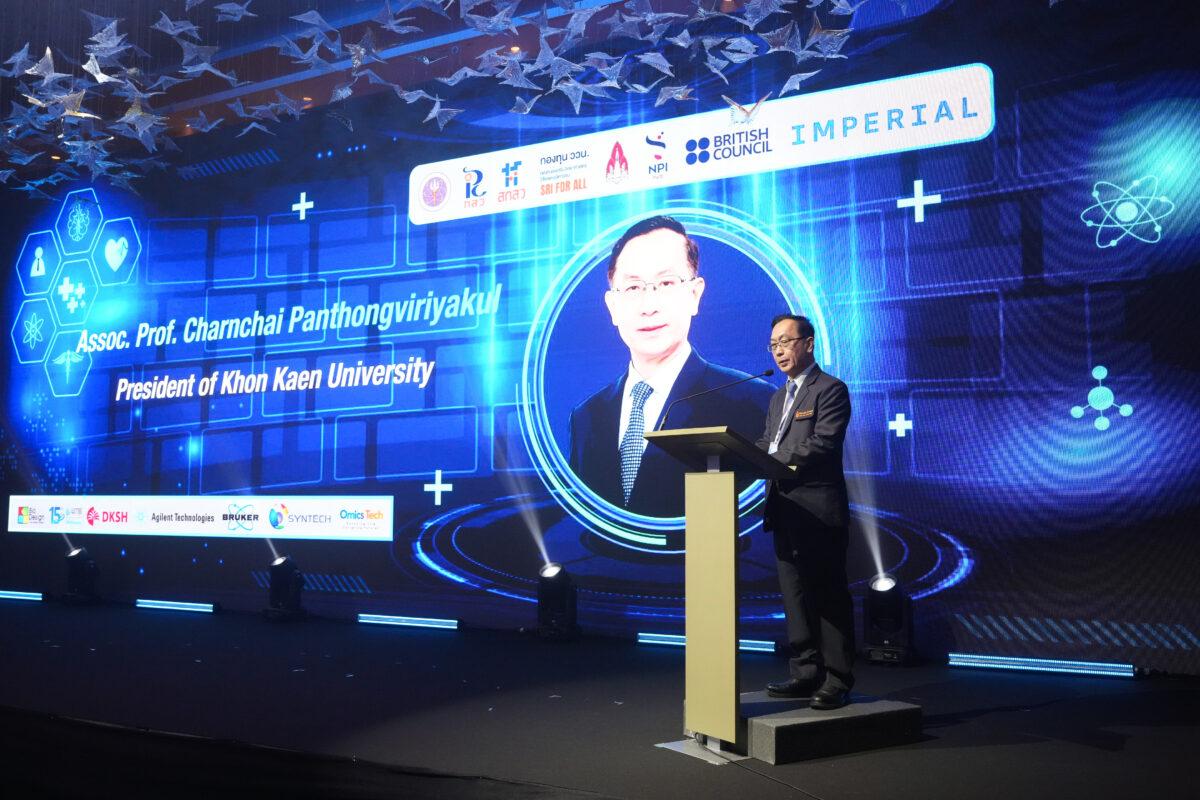
Assoc. Prof. Dr. Charnchai Panthongviriyakul, President of Khon Kaen University, stated that the conference marks the beginning of a “global collaborative bridge” connecting Thailand with international experts. “Khon Kaen University is committed to being a key driver in advancing Thailand with cutting-edge medical technology,” he said. “This meeting is a crucial first step in building an academic network that will elevate the nation’s health system to global standards.”
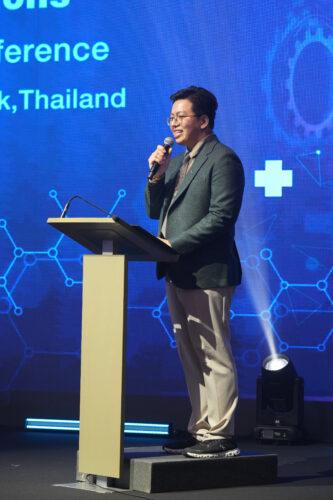
The collaboration is co-led by Asst. Prof. Dr. Jutarop Phetcharaburanin of KKU’s Faculty of Medicine, who also serves as the Director of the National Phenome Institute. He noted that the institute aims to use phenomics and AI to develop innovations that meet public needs. “This event is a platform for building a strong network for research, development, and real-world application to genuinely improve the health of the Thai people in the near future,” he explained.
Representing the UK side, Assoc. Prof. Dr. Jia Li from Imperial College London highlighted the significance of the partnership. “This collaboration is a great opportunity to transfer knowledge and experience in phenomics and AI to Thailand,” she said, expressing gratitude for support from the British Council. “The exchange of expertise between our leading institutions will be a vital foundation for creating high-quality medical and health innovations.”
The event also underscored the strong bilateral ties between the United Kingdom and Thailand. Ms. Anna Pearson, Economic and Sustainable Development Counsellor at the British Embassy in Thailand, remarked on the 170-year relationship, stating, “This academic cooperation reflects the strong bond between our nations, particularly in research and innovation, and shows our joint commitment to using science and technology to build a resilient health system and a sustainable society.”
Funded by the British Council, the conference attracted over 170 participants, including medical professionals, academics, researchers, students, and industry entrepreneurs from across the country. The event is considered a significant achievement for KKU’s National Phenome Institute in its mission to drive scientific innovation for practical medical application in Thailand and Southeast Asia.

